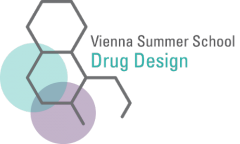Knut Baumann • Stefan Boresch • Maurizio Botta • Sharon Bryant • Donatella Callegari • Andrea Cavalli • Gabriele Cruciani • Gerhard F. Ecker • Stephan Ehrlich • Peter Ettmayer • Matthias Frech • Marcus Gastreich • Andreas Goeller • Francesco Greco • Gerhard Hessler • Alexander Hillisch • Dušanka Janežič • Johannes Kirchmair • Eleni Kotsampasakou • Hugo Kubinyi • Thierry Langer • Alexandra Naß • Peter Nussbaumer • Chris Oostenbrink • Matthias Rarey • Klaus-Juergen Schleifer • Matt Segall • Wolfgang Sippl • Gunther Stahl • Anna Weinzinger • Gerhard Wolber • Barbara Zdrazil
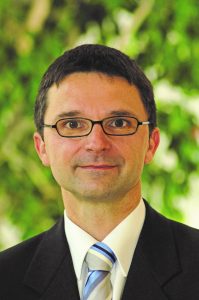
Knut Baumann
Prof. Dr. Knut Baumann is Professor for Medicinal Chemistry at the University of Technology Braunschweig, Germany. He received his PhD in pharmaceutical analysis from the Julius Maximilian University of Würzburg, Germany, and started his academic career at the University of Bern, Switzerland which he continued in Würzburg where he also prepared his habilitation thesis in Pharmaceutical Chemistry. Since 2006 he is full professor at the University of Technology Braunschweig. In 2008 he joined the editorial team of Molecular Informatics as an editor. His research fields are chemoinformatics and chemometrics with a focus on predictive modelling of molecular properties and validation of predictive models.
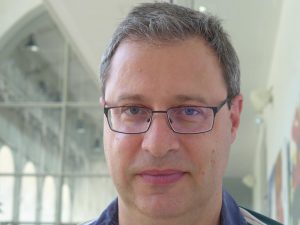
Stefan Boresch
Stefan Boresch is professor in the Department of Computational Biological Chemistry of the Faculty of Chemistry since 2011. An expert in biomolecular MD simulations, his reseach interests encompass (i) methods development and applications of MD based free energy simulations, (ii) extending free energy simulations to hybrid QM/MM descriptions of interactions, and (iii) optimization of MD on novel computer architectures. He is a developer of the CHARMM biomolecular simulation package and hosted the 2015 CHARMM developers' meeting, chaired by Martin Karplus, in Vienna. Since 2017 he is board member of the Austrian Chemical-Physical Society.

Maurizio Botta
Prof. Maurizio Botta obtained a degree with laude in Chemistry at University of Rome in 1974 and in December 1979 he was awarded with the title of PhD at the University of New Brunswick under the supervision of Prof. K. Wiesner. Between 1981 and 1987 he came back to Italy and held a position at the University of Rome as a Assistant Professor in Organic Chemistry. However, during this period he has spent two years at the University of Montreal as an invited researcher in Prof. S. Hanessian’s labs. In 1987 Prof. Botta moved to the University of Siena, where he was appointed with the position of Associate Professor first and of Full Professor of Medicinal Chemistry at the Department of Biotechnology Chemistry and Pharmacy in 2000. In the same University he has also covered the position Head of the Dipartimento Farmaco Chimico Tecnologico between November 2002 and October 2008, and the position of Dean of the Faculty of Pharmacy between November 2009 to December 2012. Furthermore, since January 2008 he is an Adjunct Professor in the Department of Biology in the Temple University College of Science and Technology, Philadelphia (USA). Prof. Maurizio Botta’s scientific research is supported by EU and National funds as well as industrial grants, which allow him to work on medicinal chemistry topics, in particular on the design, synthesis and in vitro ADME evaluation of anticancer, antiviral and antibiotic compounds. Thanks to the positive results he has obtained, he has also co-founded two spin-off companies: MoLiRom (molecular Links Rome) and LDS (Lead Discovery Siena). In his career, Prof. Maurizio Botta has been active in the publication of his results, being the author of more than 500 papers, 10 publications on volumes, 26 patents, and over 450 proceedings at congresses. He was also active in training and general dissemination, being a member of the Scientific and/or Organizing Committees of several scientific Schools and Meetings (European COST Meetings, European Workshop in Drug Design now at its Tenth Edition, European Workshop in Drug Synthesis now at its Fifth Edition). Moreover, he is an associate Editor of ACS Medicinal Chemistry Letters and is member of the Editorial Advisory Board of Journal of Medicinal Chemistry (ACS Publications), Journal of Chemical Information and Modeling (ACS Publications) and Chemistry and Medicinal Chemistry (Wiley). Prof. Botta’s achievements were recognized through five “Academic Development Program in Chemistry” Merck Research Laboratories Awards (in 1996, 1997, 1998, 2001 and 2002) and with the recent “Pietro Pratesi’s medal” for his research studies (Rende, September 2014 – XXV Congresso Nazionale della Società Chimica Italiana).
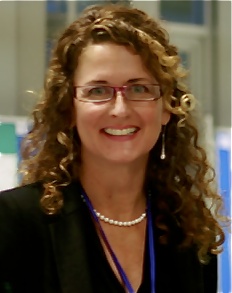
Sharon Bryant
Sharon Bryant is CEO at Inte:Ligand GmbH, a company that provides research consulting and develops scientific software to support scientists in the pharmaceutical, and life science industries. Her main interests involve approaches to innovative design and needs driven solutions to leverage Inte:Ligand's CADD expertise to benefit researchers in 85 countries today. She has more than 25 years experience in molecular design and has been actively involved in early discovery research for pharmaceutical, cosmetic and nutritional products industries involving a variety of targets, including cancer, antivirals and GPCRs. Sharon's lifelong passion has been teaching and learning. She has developed training courses for industrial and academic researchers involving computer aided molecular design and regularly teaches for Master and PhD programs at Universities in Europe and Asia. Currently, she holds a guest professorship at University of Vienna where she teaches courses on Innovation and Leadership and Negotiation for Pharmaceutical Scientists. Prior to joining Inte:Ligand, Sharon was a Research Scientist at the National Institutes of Health (NIH) where she applied CADD and biophysical methods to develop opioid derivatives. She has authored more than 130 research publications and holds patents covering opioid inventions. She has delivered more than 100 lectures worldwide at drug discovery conferences and research organizations and her work has been recognized with NIH awards and international fellowships. Sharon studied Chemistry and Biochemistry at the University of North Carolina at Chapel Hill and holds an executive MBA from the University of California at Los Angeles, USA.

Donatella Callegari
Donatella Callegari is a third-year PhD student enrolled in the PhD program “Drugs, Biomolecules and Heaths Products” at University of Parma. She works in the Drug Design and Discovery Group of Prof. Marco Mor, under the supervision of Prof. Alessio Lodola and she joined the EUROPIN program in 2015. Her research interest is focused on the application of computational methods, including molecular dynamics simulations and enhanced sampling methods, to design Eph-ephrin PPI inhibitors, EGFR kinase inhibitors, and to predict the kinetics of protein-ligand unbinding.
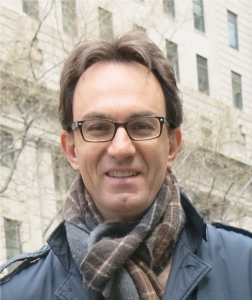
Andrea Cavalli
Andrea Cavalli is Professor of Medicinal Chemistry at the University of Bologna and Research Director at the Italian Istitute of Tecnology, Genova, Italy, where he is also Deputy Director for the Area “Computation & Data Science”. Prof. Cavalli received his PhD in Pharmaceutical Sciences from the University of Bologna in 1999 and did postdoctoral work at SISSA (Trieste, Italy) and ETH (Zurich, Switzerland). Prof. Cavalli’s research has combined computational chemistry with drug discovery, focusing on neurodegenerative diseases, cancer, and neglected tropical diseases. He has developed and applied algorithms and protocols to accelerate and enhance the discovery of novel lead and drug candidates. In particular, he has been a pioneer in the use of molecular dynamics simulations and related approaches to drug discovery. In an interdisciplinary effort, these approaches led to the identification and characterization of lead candidates within the framework of multitarget drug discovery and polypharmacology. He is an author of more than 200 scientific papers and inventor in several international patents. He has delivered more than 100 invited lectures and seminars at international congresses and prestigious institutions. He is member of the Editorial Board of several international journals, and in 2014 he founded a high-tech startup company (BiKi Technologies) focused on molecular dynamics and enhanced sampling methods for drug discovery. In 2003, he was awarded the Farmindustria Prize for Pharmaceutical Research.
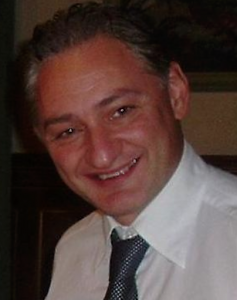
Gabriele Cruciani
Gabriele Cruciani is full professor of Organic Chemistry and Cheminformatics at the University of Perugia, Italy. Prof. Cruciani is the scientific director of Molecular Discovery company based in London, and is the director of the human Cytochrome Consortium Initiative (a consortium of seven pharmaceutical companies collaborating to address metabolism issues in predictive human metabolism). Cruciani is also a member of the technical scientific advisory board of several pharmaceutical companies. In 2001 he got the Corvin Hansch Award from the Molecular Modeling Society in USA for his work on QSAR and Molecular Modeling, and in 2005 he got the Research Award from Società Chimica Italiana, Organic Chemistry Division, and in 2009 he was the recipient of the Novartis Research Award. In 2014 he was the recipient of the gold medal Angelo Mangini award from Italian Chemical Society and finally in 2015 he was the recipient of the gold medal Herman Wold Award from Swedish Chemical Society. Prof. Cruciani made significant contributions to the field of ADME and computer-aided drug design, due to his over two decades of software production for data mining and drug discovery experience, focused on drug informatics, cheminformatics, small-molecule and target informatics, and virtual screening. He obtained several EU grants and Italian research grants, plus a number of support grants from pharmaceutical companies. Cruciani is included in the Top Italian Scientists list.
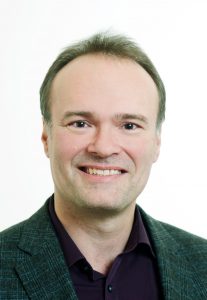
Gerhard F. Ecker
Gerhard Ecker is Professor for Pharmacoinformatics and Head of the Pharmacoinformatics Research Group at the Department of Medicinal Chemistry, University of Vienna. He also coordinates the research focus Computational Life Sciences of the Faculty of Life Sciences. Gerhard received his doctorate in natural sciences from the University of Vienna and performed his post-doctoral training at the group of J. Seydel in Borstel (Germany). He has published more than 130 articles mainly related to SAR and QSAR studies on P-glycoprotein (P-gp), edited 3 books and gave more than 100 invited lectures. His research focuses on computational drug design, which not only led to the identification of highly active propafenone-type inhibitors of P-gp, but also paved the way for development of new descriptors and virtual screening approaches for identification of new scaffolds active at P-gp. With the increasing knowledge on the importance of P-gp for ADME, his interest moved towards the prediction of ABC-transporter substrate properties. Recently he extended the studies also on other transporters and antitargets, such as SERT, DAT, NET, and GAT1-4, as well as the hERG potassium channel, the GABA receptor, and TRPV1. Besides this, he coordinates the Open PHACTS project, which aims at creating an Open Pharmacological Space by semantic integration of public databases. Gerhard is member of Editorial Advisory Boards and Editorial Boards of several journals and Editor of Molecular Informatics. He regularly organizes a summer school on drug design in Vienna and coordinates the EUROPIN PhD program in Pharmacoinformatics. From 2009 to 2011 he served as President of the European Federation for Medicinal Chemistry.
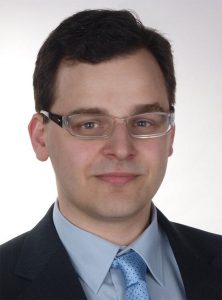
Stephan Ehrlich
Stephan Ehrlich works as Senior Application Scientist for Schrödinger since 2016. Before that, he did a postdoc at the University of Bonn where he cooperated with Bayer HealthCare to predict protein-ligand binding affinities using graphics card based quantum mechanical methods. He received his PhD from the University of Münster, where he was working on non-covalent interactions in small organic systems in the Group of Prof. Dr. Stefan Grimme. A chemist by training, Stephan has a broad background in the field of computational chemistry with a focus on non-covalent interactions and quantum-mechanical methods.
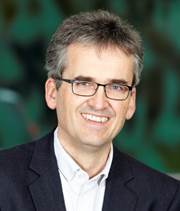
Peter Ettmayer
Peter Ettmayer graduated at the Vienna University of Technology, Austria, in synthetic organic chemistry and received his doctoral degree there in 1990 (sub auspiciis praesidentis). After a postdoctoral stay at the Christian Doppler Laboratories for Chiral Compounds & Chemical Synthesis he joined the Novartis Research Institute in Vienna as a laboratory head in the antiviral therapy and immunopathology area in 1991. In 2005 Peter joined Boehringer-Ingelheim as a group leader in the Oncology Medicinal Chemistry Department. His main responsibilities span from heading the structural research group and analytics to heading NCE based external collaborations in the UK, Boston and Shanghai. Following the successful internalization of several first in class projects in 2014 Peter is now responsible for biophysical and function assays for compound profiling in the TA oncology. Peter is the author of numerous publication and patents and as the chairman of the medicinal chemistry section of the Austrian Chemical Society organized and chaired the JMMC 2005 and EFMC-ISMC in Vienna in 2008. His main research areas are in the areas of oncology and immunopathology covering many fields of medicinal chemistry, e.g. PPIs, kinase inhibitors, peptidomimetics, combinatorial chemistry, prodrugs and PROTACs.
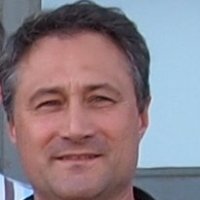
Matthias Frech
Since 2008 I am heading the department for Molecular Interaction and Biophysics (MIB) at Merck-Serono. The group is responsible for molecular interaction studies and protein crystallographic. Fragment based lead discovery approaches, thermodynamic signatures, interaction kinetics and protein structures are our current data packages which support medicinal chemistry.1998-2008: responsible for a protein chemistry group working with different biophysical methods, protein purification and analysis for structural studies and high throughput screening campaigns. 1995-1998: working with Brian Hemmings on protein kinases Friedrich Miescher Institute in Basel. 1992-1994: EMBO fellow, work on nucleotide exchange factors and adaptor proteins in the p21ras signalling with Marc Chabre and Pierre Chardin at the CNRS Institute IPMC in Sophia Antipolis / France. 1988-1992: doctoral thesis with Alfred Wittinghofer in the department of Biophysics at the Max Plank Institute in Heidelberg focusing on p21ras and p21ras like proteins. Studies at the Universities of Wuerzburg and Heidelberg.

Marcus Gastreich
Marcus Gastreich is BioSolveIT's Director of Application Science acting as a strategic interface between pharma clients and IT development. BioSolveIT is a globally acting provider of drug modeling software and services. Gastreich holds a diploma degree in chemistry from the University of Bonn, Germany. He did his doctorate in Theoretical Chemistry under supervision of Prof. Christel M. Marian on ab initio NMR simulation of solids and force field development for amorphous materials, with a minor in Bioinformatics. In the late 90’s, he went to London for a research stay with Julian Gale at Imperial College. In 1999, shortly before BioSolveIT had been founded as a spin-off from Fraunhofer Gesellschaft (FhG) in 2001, he joined Prof. Thomas Lengauer's chem- and bioinformatics group in St. Augustin, Germany, where BioSolveIT's popular FlexX molecular docking program had initially been developed. Gastreich is (co-/)author of more than a dozen scientific publications and has contributed to several books. His major interests lay in user-centric interface design for scientific software, visualization of molecular information, and exploiting fast, interactive algorithms to help in drug design and development. His fingerprint can be clearly made out on tools such as LeadIT, SeeSAR, and PepSee, a new therapeutic peptide analysis and design software. Marcus travels worldwide to understand users' & clients' needs, and to give presentations. He has insight into small and large organizations of both academic and industrial flavors. His responsibilities span from the US, across Europe, and to Japan.

Andreas Goeller
Andreas H. Göller is Computational Chemist in the Pharmaceuticals division of Bayer AG, Wuppertal, Germany. He is developing and implementing QSAR ADMET prediction models for multiple anti-targets and physicochemical properties, with special expertise in Site of Metabolism prediction. He joined Bayer AG in 2001 as a computer scientist in different roles, doing project support for some years, managing the modeling IT infrastructure, and co-leading the development of the Bayer cheminformatics platform PIx. In his current role he is also leading external collaborations on such diverse topics as binding affinity prediction, cheminformatics, or ADMET. Before Bayer, he was Post-Doc at the University of Jena and worked on non-linear optical and spectral properties of polymer model compounds applying quantum chemical methods. He received his Ph.D. in Computational Chemistry with Prof. Tim Clark in 1997 and his diploma in Organic Chemistry in 1993 from the University of Erlangen, Germany. He is author of more than 30 research papers.
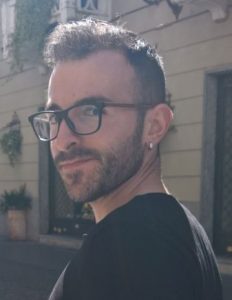
Francesco Greco
Francesco A. Greco has studied Pharmaceutical Chemistry and Technologies at the University of Perugia, Italy. During his master thesis, he worked on both biophysical and computational aspects in order to deal with drug discovery campaign. He is attending the last months of his PhD under the supervision of Prof. Antonio Macchiarulo (Univ. of Perugia). Both his master and PhD have been carried on in the framework of the DIDO project, funded by the European Research Council (ERC). The main goal of this is to disclose new modulators of the enzyme IDO1 in order to create new opportunity in the field of immunotherapy. In 2015, he has successfully applied for the Europin program. Right now, he is carrying out a traineeship in TES Pharma (Perugia, Italy).
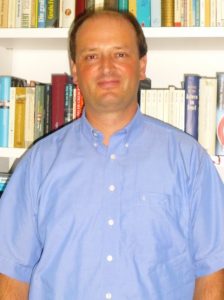
Gerhard Hessler
Dr. Gerhard Hessler is head of Structure, Design & Informatics at Sanofi in Frankfurt. His team supports computer-based drug design, structural biology and data management. Before, he headed teams in computer-aided drug design and structural biology since 2008. He joined Aventis in 2001 as a computational chemist, after working for four years in the computational chemistry group of the Central Research at Bayer AG. Dr. Gerhard Hessler did his Ph.D. at Technical University of Munich in NMR-based conformational analysis of biologically active peptides and oligonucleotides. During his industrial career the main focus of his work is the application of ligand- and structure-based design techniques to the development of drugs.

Alexander Hillisch
Alexander Hillisch is a Director of Medicinal Chemistry and Head of Computational Chemistry at Bayer AG, Wuppertal, Germany. His team supports drug discovery efforts in cardiology and ophthalmology indication areas with computational chemistry, chemoinformatics, in silico ADMET and structural bioinformatics techniques. From 1998 to 2003 he headed a research group at EnTec GmbH, Jena, Germany, a subsidiary of Schering AG, Berlin. There he was project manager in preclinical research and involved in the computer-aided design and pharmacological characterization of drugs against gynecological diseases and cancer. He conducted his Ph.D. thesis at the Institute of Molecular Biotechnology (IMB), Jena in the area of biophysics (NMR, FRET) and molecular modeling. Alexander Hillisch received his Ph.D. in Biochemistry with Prof. Peter Schuster in 1998 and his diploma in Pharmacy in 1995 from the University of Vienna, Austria. He is author of 42 research papers, 59 patents and 2 books. Alexander teaches “Molecular pharmacology and Drug Design” at the University of Cologne from which he received a honorary professorship in 2010.
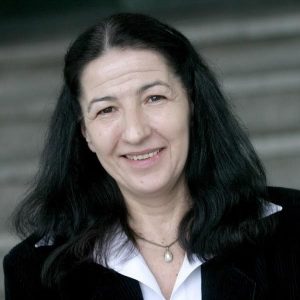
Dušanka Janežič
Dušanka Janežič is full professor at the Faculty of Mathematics, Natural Sciences and Information Technologies at the University of Primorska (Slovenia). Has published 2 scientific books and 105 publications in SCI journals with over 1500 pure citations in Web of Science database, and h-index 19. One of the Editors in the ACS Journal of Chemical Information and Modeling (2001-2014, EAB member 2015-present). In 2013, Recipient of Žiga Zois Award for outstanding research achievements in mathematics in natural sciences. In 1999, Recipient of Ambassador in Science of the Republic of Slovenia Award. Since 2013 she is appointed by the government of Republic of Slovenia as council member of the National Agency of Qualitative Evaluation of Higher Education in Slovenia. She worked in the USA as a visiting researcher at the National Institute of Standards and Technology. As a Senior Fulbright Scholar she conducted research in the USA at the National Institutes of Health. She worked at the Technical University of Munich, Germany as a DAAD fellow. Her current research interests include graph theory development, prediction of protein-protein and protein-ligand binding sites, biomolecular simulations, and the application of these techniques to problems in pharmaceutical research and drug development.

Johannes Kirchmair
Johannes Kirchmair is Professor of Applied Bioinformatics (W1) at the University of Hamburg, Center for Bioinformatics, and Head of the Junior Research Group for Applied Cheminformatics and Molecular Design. He earned his Ph.D. in Cheminformatics/Medicinal Chemistry from the University of Innsbruck in 2007. Johannes started his career as Application Scientist at Inte:Ligand, Vienna, and University Assistant at his Alma Mater. In 2010 he joined BASF SE Ludwigshafen, where he was responsible for the computational optimization of fungicide leads. He worked as a Research Associate at the University of Cambridge, Centre for Molecular Informatics (2010-2013), and was leading a research project on drug metabolism prediction at ETH Zurich, Institute of Pharmaceutical Sciences (2013-2014). His main research interests include the development and application of computational methods for the prediction of the bioactivity and metabolism of xenobiotics.
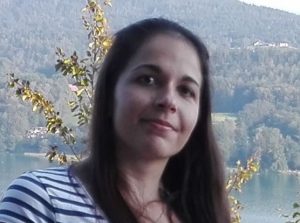
Eleni Kotsampasakou
Eleni Kotsampasakou is a Computational Toxicologist in the Computational Toxicology Group of GlaxoSmithKline in Ware, United Kingdom. She joined GSK in March 2017 and her job focuses in data analysis and developing QSAR models for endpoints and molecular targets associated with toxicity. Additionally, she tries to predict and/or explain the toxicity potential of active substances that are under development, as well as their metabolites, and she also supports the Hepatotoxicity Attrition Team of GSK towards preventing hepatotoxicity. Eleni has a Bachelor in Pharmacy (2010) and a Master in Pharmaceutical Chemistry (2012) from Aristotle University of Thessaloniki, Greece. She obtained her PhD in Pharmacoinformatics from University of Vienna, Austria (December 2016), under the supervision of Prof. Gerhard Ecker. Her PhD research was focused in modelling hepatic transporters inhibition and hepatotoxicity endpoints, while investigating the potential association between the two phenomena. During her PhD she was involved in eTOX project (IMI) and SFB35 (FWF), and she was also accepted in EuroPIN program in 2014.
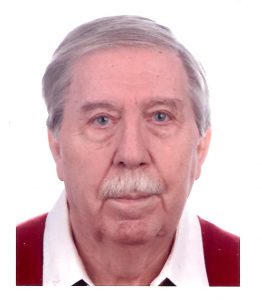
Hugo Kubinyi
Hugo Kubinyi studied chemistry in Vienna, Austria. After his Ph.D. thesis at the Max Planck Institute of Biochemistry in Munich he continued as PostDoc at the German Cancer Research Centre in Heidelberg. In 1966 he joined Knoll AG, later a subsidiary of BASF AG. Development of a partial synthetic cardiac glycoside (Meproscillarin, CLIFT; launched in 1978).
In 1985 he moved to BASF AG. Since 1987, until his retirement, he was responsible for the Molecular Modelling, X-ray Crystallography and Drug Design group of BASF, since early 1998 also for Combinatorial Chemistry in the Life Sciences. In 1986 he was appointed as associate Professor of Pharmaceutical Chemistry at the University of Heidelberg.
He is former Chair of the Cheminformatics and QSAR Society (1995-2000; from 2000-2007 Advisor to the Chair) and IUPAC Fellow. In 2006 he received the Herman Skolnik Award (CINF, ACS) and in 2008 the Nauta Award in Pharmacochemistry (EFMC) and the Nauta Chair (Vrije Universiteit, Amsterdam). In 2011 he became a Corresponding Member of the Brazilian Academy of Sciences (Academia Brasileira de Ciências).
From his scientific work resulted more than 100 publications and seven books on QSAR, 3D QSAR, Drug Design (the German book "Wirkstoffdesign" received the 1999 Book Award of the FCI, Association of Chemical Industry), Chemogenomics in Drug Discovery, and Drug Discovery Technologies (Volume 3 of Comprehensive Medicinal Chemistry II).

Thierry Langer
Thierry Langer is full professor and head of the department of Pharmaceutical Chemistry at University of Vienna, Austria. Before that, he was CEO of Prestwick Chemical, France. He is author of more than 180 original papers and has long term expertise in computational medicinal chemistry. In 2003, with colleagues he founded the software development and consulting company Inte:Ligand GmbH. which he led until 2008. He is also the coordinator of the Austrian academic drug discovery initiative wings4innovation.
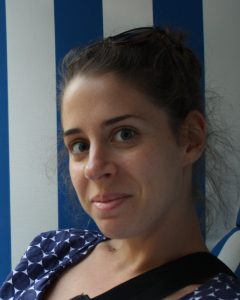
Alexandra Naß
Alexandra Naß is a PhD student at Freie Universität Berlin, Germany, in the group of Prof. Dr. Gerhard Wolber and since 2014 part of the EUROPIN doctoral program. Currently she is also part of the GDCh CIC board as a young associated member. Alexandra studied pharmacy at the Martin-Luther-Universität Halle-Wittenberg, Germany, where she started focusing on compuational drug design thanks to a short internship in the research group of Prof. Dr. Wolfgang Sippl which lead to a six month research stay in the Pharmacoinformatics Research Group of Prof. Dr. Gerhard Ecker in Vienna. Her current research concentrates on selective inhibition of protein tyrosine phosphatases and novel methods to assess protein-ligand complementarity.

Peter Nussbaumer
Dr. Peter Nussbaumer has more than 30 years of industry experience in drug discovery and early drug development. Currently, he is Managing Director and Head of Medicinal Chemistry at the Lead Discovery Center GmbH (LDC) in Dortmund, Germany. In this function Peter has been co-responsible for building-up and running this unique translational drug discovery organisation founded by the Max Planck Society, working at the interface of academia and industry. He is member of several international scientific advisory boards and serves as advisor to private and public funding bodies. Peter is (co)author of >25 patent applications and >70 peer-reviewed publications and referee to various journals. Before joining LDC, Peter was Executive Director at the Novartis Institutes for BioMedical Research in Vienna, Austria, heading the Chemistry Department. Peter has a Dr. degree from the Vienna University of Technology, Austria.
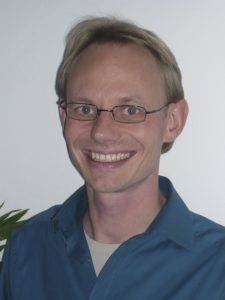
Chris Oostenbrink
Chris Oostenbrink is professor at the University of Natural Resources and Life Sciences in Vienna and heads the Institute of Molecular Modeling and Simulation. He has published more than 130 peer-reviewed papers involving computational approaches to describe complex biomolecular systems. He was brought to BOKU on a Vienna Science Chair by the Vienna Science and Technology Fund (WWTF) in 2009 and also holds a Starting Grant of the European Research Council (ERC). His main research interests are the structure and function of complex biomolecular systems, through molecular simulations and the accurate description of molecular interactions.
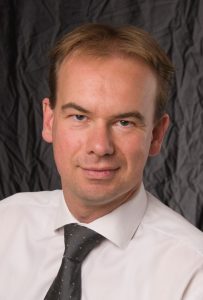
Matthias Rarey
Prof. Dr. Matthias Rarey heads the Center for Bioinformatics at the Universität Hamburg, Germany. His background is in Computer Science with a focus on Bio- and Cheminformatics. Prof. Rarey is a co-founder of the cheminformatics company BioSolveIT GmbH. Since 2002, his Research Group for Computational Molecular Design is focusing on the development of new algorithms for problems occurring in molecular design, on innovative approaches to cheminformatics and new molecular visualization techniques. Many innovative software tools for structure- and ligand-based molecular design resulted from this research, several of which have gained international attention, e.g. FlexX, Feature Trees, PoseView, SMARTSeditor, Mona, ProToss and HYDE (see also http://software.molecular-design.net and http://proteins.plus). Since 2014, Prof. Rarey is an Associate Editor of the ACS Journal of Chemical Information and Modeling. He is currently spokesman of the Fachgruppe Bioinformatik (FaBI), representing nearly one thousand scientists in Germany. Together with colleagues, he established the study programs M.Sc. Bioinformatik and B.Sc. Computing in Science in Hamburg.

Klaus-Juergen Schleifer
Prof. Schleifer studied pharmacy at the Freie Universität Berlin. After his PhD in experimental pharmaceutical chemistry he started a “Habilitation” in the computational working group of Prof. Höltje. In 2001 he changed from academia to industry and succeeded Prof. Kubinyi as head of the molecular modelling at BASF Ludwigshafen. Today he is heading Computational Chemistry and Bioinformatics with sites at San Diego (California), Raleigh (North Carolina), Ludwigshafen and Mumbai. Parallel to his work at BASF he is lecturer for Drug Design at the University of Düsseldorf where he was appointed as Professor for Pharmaceutical and Medicinal Chemistry (“apl. Prof.”) in 2008.
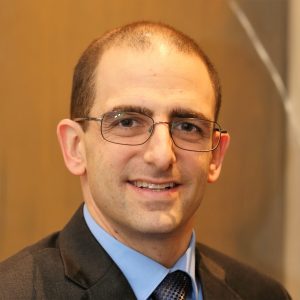
Matt Segall
Matt is CEO of Optibrium. He has a Master of Science in computation from the University of Oxford and a Ph.D. in theoretical physics from the University of Cambridge. As Associate Director at Camitro (UK), ArQule Inc. and then Inpharmatica, he led a team developing predictive ADME models and state-of-the-art intuitive decision-support and visualization tools for drug discovery. In January 2006, he became responsible for management of Inpharmatica's ADME business, including experimental ADME services and the StarDrop software platform. Following acquisition of Inpharmatica, Matt became Senior Director responsible for BioFocus DPI's ADMET division and in 2009 led a management buyout of the StarDrop business to found Optibrium, which develops software for small molecule design, optimisation and data analysis. Matt has published over 30 peer-reviewed papers and book chapters on computational chemistry, cheminformatics and drug discovery.
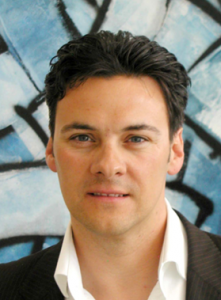
Wolfgang Sippl
Wolfgang Sippl is Professor for Medicinal Chemistry at the Martin-Luther-University of Halle-Wittenberg (Germany). He obtained a Ph. D. in 1997 in Pharmaceutical Chemistry at the University of Düsseldorf in the group of Hans-Dieter Höltje and was a post-doctoral fellow at the Université Louis-Pasteur in Strasbourg (France) where he worked with Camille G. Wermuth. Since 2003 he is Full Professor at the University of Halle-Wittenberg and since 2010 he is Director of the Institute of Pharmacy in Halle. He has published more than 180 articles mainly related to drug design, virtual screening and structure-based optimization of epigenetic modulators. He has edited four books including and gave more than 100 invited lectures. His research focuses on the drug design of epigenetic modulators, which not only led to the development of successful virtual screening methods, but also resulted in the development and biological characterization of novel epigenetic modulators for the treatment of cancer and parasitic diseases.
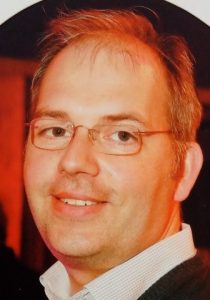
Gunther Stahl
Gunther Stahl received his license as pharmacist in 1996 after his study at the University of Bonn. He continued his education as Ph.D. student under Prof. Höltje at the University of Düsseldorf where he received his doctorate degree in 2001 focusing on Homology Modeling and Molecular Dynamics. He then joined Tripos GmbH as Application Scientist to work with industrial and academic customers to help them apply the different computational chemistry tools available. After different roles at Tripos (Application Scientist at the US East Coast and later again from Germany as manager of the PacRim distributors) he joined OpenEye in 2012 to work with all their European customers.
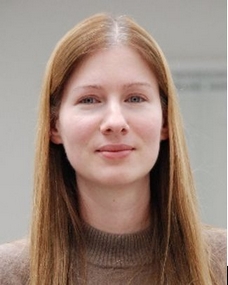
Anna Weinzinger
Anna Weinzinger is Assistant Professor at the Department of Pharmacology and Toxicology at the Faculty of Life Science since 2016. She conducted her doctoral research at the Institute of Theoretical Chemistry, Vienna, in the area of molecular modeling, focusing on different membrane proteins including GPCRs and voltage gated calcium channels. Anna performed her post-doctoral training at the group of Bert de Groot, at the Max Planck Institute for Biophysical Chemistry in Göttingen (Germany), where she started to address the “off-target” pharmacology of the hERG K+ channel. She habilitated in Pharmacoinformatics in 2015 at the University of Vienna. Her fields of research are voltage and ligand gated ion channels. Her research combines computational methods such as homology modeling, molecular dynamics simulations and drug docking with a special focus on rare ion channel diseases such Cantú syndrome (funded by the ERARE initiative of the European Union), Long QT syndrome or Timothy syndrome.
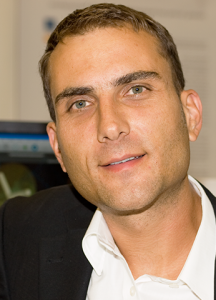
Gerhard Wolber
Prof. Gerhard Wolber is professor for Pharmaceutical Chemistry and head of the computational chemistry group at the Institute of Pharmacy at the Freie Universitaet Berlin since 2010. After his studies of pharmacy at the University of Innsbruck and Computer Science at the Technical University of Vienna, he received his PhD in pharmaceutical chemistry at the University of Innsbruck. In 2003 he co-founded the molecular modeling software company Inte:Ligand together with Prof. Hermann Stuppner and Prof. Thierry Langer. In 2008 he changed back to academia as assistant professor and group head of the Computer-Aided drug design group at the University of Innsbruck before changing to the Freie Universitaet Berlin in 2010. His research focuses on computational drug design and the development of drug development and virtual screening tools. Gerhard Wolber is the initial author of the pharmacophore design and screening tool LigandScout, which is still actively developed.
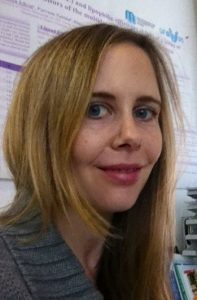
Barbara Zdrazil
Barbara Zdrazil is working as postdoctoral University Assistant at the University of Vienna, Department of Pharmaceutical Chemistry. She is the principal investigator in a FWF stand-alone project, investigating hepatic OATP-ligand interactions and selectivity. Barbara earned her PhD in the field of Pharmacoinformatics/Pharmaceutical Chemistry from the University of Vienna in 2006. During her PhD, Barbara was mainly engaged in QSAR and cheminformatics, and got some training in chemogenomis during an internship with Jordi Mestres (Barcelona). Barbara performed her postdoctoral training in the group of Hans-Dieter Höltje (University of Düsseldorf) where she gained knowledge in molecular dynamic simulations. From 2008 onwards Barbara was working as a project Co-worker in the Pharmacoinformatics Research Group (University of Vienna), being involved in national and European projects: SFB35 (FWF), eTOX (IMI), OpenPHACTS (IMI), and EU-ToxRisk (H2020 project). Her main research interests include data mining, data integration, antitargets and related toxicity, the concepts of polypharmacology and selectivity.
